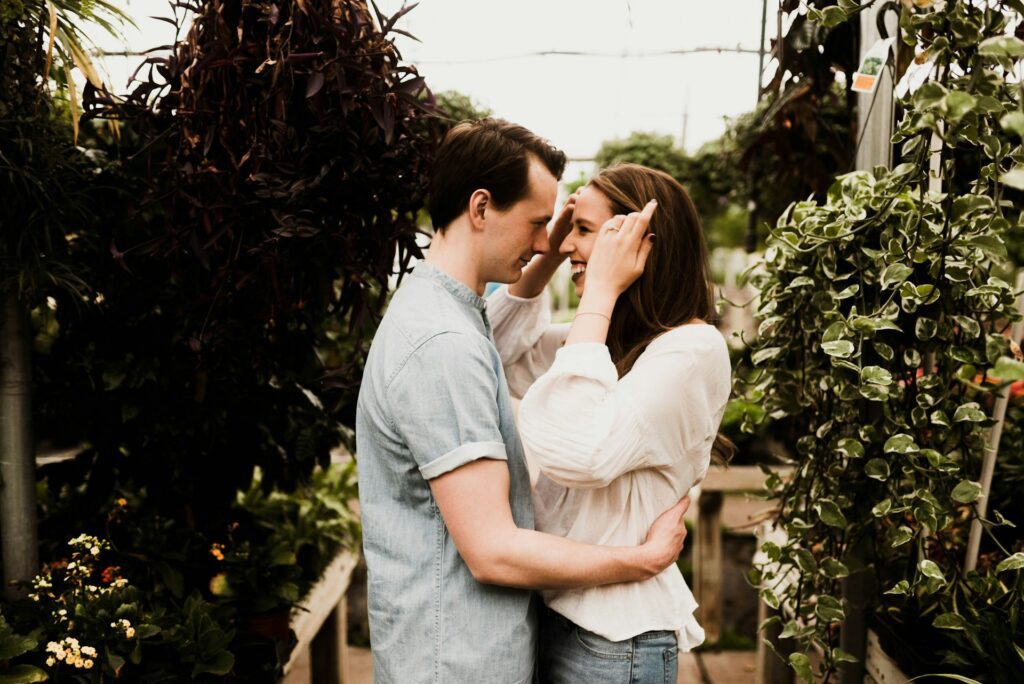How to Be an Adult in Relationships: Navigating the Journey Together
Want to build a stronger, more mindful relationship? This article explores the importance of self-care, open communication, and learning from past experiences. By becoming an “adult” in your relationship, you can create a deeper connection and navigate life’s challenges together.
Adulthood in relationships is a complex dance of loving one person while navigating the complexities of adult relationships. Drawing on the Buddhist concept of mindfulness, this journey delves into the keys to mindful loving, which include acceptance, giving and receiving, and the creation of a lasting bond. Our personality traits and how we manage these elements within the relationship dynamic influence these elements.
Table of Contents
This post contains affiliate links which may earn me commissions should you click through them and take certain actions. As an Amazon Associate I earn from qualifying purchases.
Introduction to Mindful Loving
Introducing mindful loving into a relationship starts with acceptance. It’s about acknowledging and engaging with the present moment fully, setting a foundation for a deeper, more connected partnership. Acceptance allows partners to see each other with clarity and compassion, fostering an environment where love can flourish authentically and without judgment.
The Essentials of Mindful Loving
Mindful loving, at its core, is about being present and attentive in relationships. This form of loving encourages individuals to be fully engaged with their partners, to listen deeply, and to communicate openly. It’s a commitment to being aware of each other’s needs and feelings and to responding with kindness and understanding.
Healthy relationships thrive when both partners practice the essentials of mindful loving. These essentials include providing undivided attention during conversations, expressing gratitude for one another, and offering comfort and support. It’s about creating an atmosphere where both individuals can be their true selves without fear of judgment or rejection.
The Role of Self-Care in Fostering Healthy Relationships
Self-care is an integral part of maintaining healthy relationships. By taking care of one’s own emotional and physical needs, an individual is better equipped to contribute positively to a partnership. Self-care involves recognizing personal limits, retaining boundaries, and letting go of ego to ensure both partners can grow and thrive together.
When individuals prioritize their well-being, they bring a sense of balance and wholeness to their relationships. This balance allows for a more harmonious exchange of love and support, where neither partner feels overwhelmed or neglected. It’s about creating a partnership where both parties feel valued and respected and where personal growth is encouraged and celebrated.
Moreover, self-care helps prevent feelings of self-depreciation or self-abandonment. By nurturing one’s own heart, a person can offer love more freely and receive it more openly, creating a cycle of giving and receiving that is both fulfilling and sustaining for the relationship.

Unpacking the Emotional Baggage from Childhood
Understanding and addressing the emotional baggage from childhood is a critical step in becoming an adult in relationships. It’s about identifying the unmet needs and unresolved feelings that may be influencing current behaviors and interactions with partners. This process paves the way for healthier, more mature relationships.
Identifying and Healing Emotional Scars
Identifying emotional scars from childhood is the first step toward healing. These scars may manifest as insecurities, fears, or unhealthy relationship patterns. By acknowledging these wounds, individuals can begin the recovery process, which often involves self-reflection, therapy, or open communication with trusted ones.
Healing from emotional scars is a journey that requires patience, compassion, and support. It’s about giving oneself the love and attention that might have been lacking in the past. As individuals work through their emotional pain, they can form more secure and trusting bonds with their partners, fostering a healthier dynamic.
Ultimately, the process of identifying and healing emotional scars is transformative. It leads to more fulfilling personal relationships and contributes to a person’s overall sense of well-being and happiness. In healing, individuals can break free from the past and embrace the possibility of a brighter, more loving future.
Learning from Past Experiences for Future Connection
Learning from past experiences is essential for building stronger future connections. By reflecting on previous relationships and interactions, individuals can gain insights into their own behaviors and preferences. This self-awareness is invaluable for creating more meaningful and lasting bonds with others.
Future connections benefit from the wisdom gained through past experiences. It allows individuals to approach relationships with a clearer understanding of what they need and want from a partner. This clarity helps set healthy boundaries and communicate expectations, which are key components of a strong relationship.
Moreover, by learning from the past, individuals can avoid repeating negative patterns and instead foster positive, nurturing connections. It’s an opportunity to grow and evolve, to become better partners, and to enrich not only their personal lives but also the lives of those they love.

Stages of Relationship Growth
Relationships and love evolve through various stages, each requiring a balance of acceptance and the art of giving and receiving. As partners journey together, they continually refine their ability to pay attention and let go of ego, fostering a deeper understanding and connection.
The Three Phases of Relationship Evolution
Relationships begin with the spark of attraction, a phase where giving and receiving attention lays the foundation. Couples learn about each other, discovering shared interests and personality traits that draw them closer. This initial stage is vital for establishing trust and mutual respect, setting the tone for the journey ahead.
The next phase is characterized by deeper commitment, where couples work to build a lasting bond. They face the challenges of integrating their lives, balancing individuality with togetherness, and navigating the complexities of adult relationships. Drawing on the Buddhist concept of mindfulness, partners learn to be fully present with each other, fostering a profound connection.
In the final phase, the relationship matures into a partnership anchored in reality. Partners have weathered storms together and clearly understand their collective strengths and weaknesses. They continue to practice giving and receiving love, support, and understanding, ensuring the relationship remains vibrant and resilient.
Nurturing Bonds: Moving Beyond Fear and Insecurity
As relationships deepen, fear and insecurity may surface, challenging the bond between partners. To nurture the relationship, individuals learn to address these fears head-on, communicating openly and working together to strengthen their connection. It’s about moving beyond personal insecurities and focusing on building a foundation of trust and security.
Understanding that fears stem from vulnerability, partners can support each other in overcoming these emotions. They commit to honesty and transparency, providing a safe space for each other to express doubts and concerns. This process allows for the growth and fortification of the bond as both partners learn to rely on the strength of their partnership.
Ultimately, nurturing a bond means accepting the imperfections of both oneself and one’s partner. It’s about embracing each other’s complete selves, including fears and insecurities, and working together to create a loving and supportive relationship. Through patience and dedication, couples can build a bond that transcends these challenges and thrives on mutual understanding and affection.
The Art of Letting Go
Like the process of making bread, letting go in relationships requires patience and an understanding that growth often comes from stillness and time. It’s an art that involves releasing what no longer serves the relationship while cherishing the lessons learned.
Handling Relationship Endings with Grace and Resolve
Ending a relationship is a difficult and emotional process. Accepting the conclusion of what was once a source of joy and hope requires grace. Individuals must navigate their grief and find the resolve to move forward, acknowledging the significance of what they’re leaving behind while also recognizing the need for personal well-being.
Graceful endings pave the way for new beginnings. By letting go with dignity, individuals open themselves up to future possibilities. They carry forward the wisdom and insights gained from the relationship, allowing these to inform their future interactions and connections with others.
Embracing Change and Personal Growth Post-Breakup
Post-breakup, embracing change is essential for personal growth. It’s a time to reflect on the relationship’s impact on one’s adult life and to cultivate a deeper understanding of oneself. This period of transformation offers the opportunity to develop new interests, strengthen existing passions, and reevaluate personal goals.
Personal growth involves acknowledging the array of emotions that come with the end of a relationship, from sadness to relief. By processing these feelings, individuals learn to integrate the experiences into their personal life narrative, recognizing the value of affection and allowing that to be part of the relationship.

Expanding Love Beyond Intimacy
Love transcends the boundaries of intimacy, impacting every part of our personal life. Recognizing this helps us to appreciate the broader role love plays in our connection with the world.
Lessons from One Relationship to the Universal
Every relationship offers lessons that can be applied universally. Love is not just a private affair but a force that shapes our interactions with others and the world around us.
By drawing on these lessons, we can expand our capacity for compassion and understanding, creating ripples of positive change in our communities and beyond.
Cultivating Compassion and Connection in a Wider Context
Compassion and connection extend far beyond the confines of romantic relationships and are vital in the tapestry of adult life. By practicing mindfulness and empathy, individuals can foster a sense of unity and understanding with others, whether it be family, friends, or even strangers. Cultivating these values in a wider context promotes a network of support and kindness, reinforcing the notion that our actions profoundly impact the community at large.
Conclusion: The Continuous Journey of Learning and Loving
Embracing adulthood in relationships is a voyage of continuous growth, where learning and loving intertwine in the dance of life. The path navigated through the teachings of psychotherapist David Richo and the author of How To Be An Adult in Relationships provides a map for maintaining healthy connections. These guides emphasize affection’s importance and allow space for each person’s unique identity, reinforcing the bond between actions and emotions.
By integrating effective communication exercises for couples and singles, individuals can foster resilience and adaptability in their shared journeys. Love, as a conscious heart’s expression, is a dynamic process that evolves with every lesson learned and every challenge overcome.





